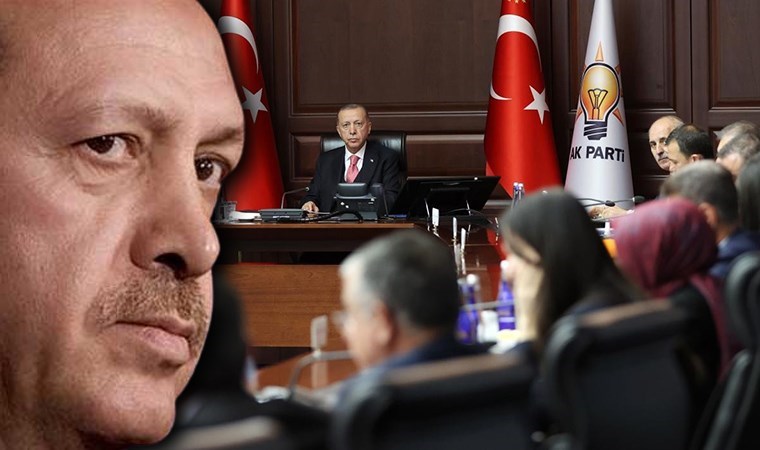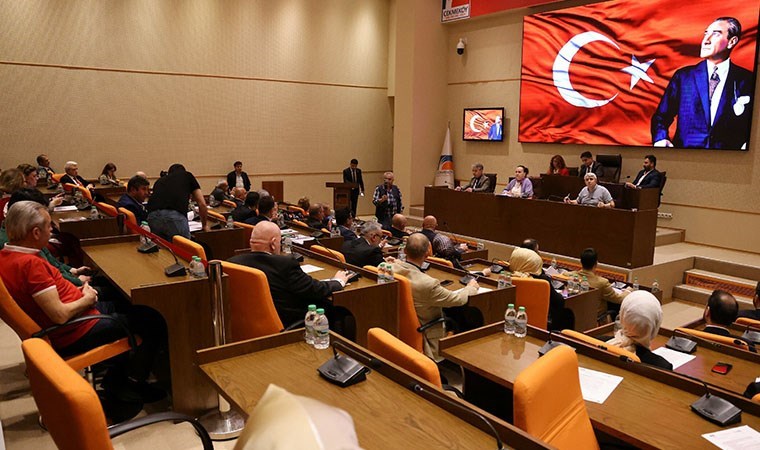The Kemalist revolution
The Kemalist revolution
HİKMET ÇETİNKAYA
Kemalism is modernity. Kemalism is revolutionism and populism.
Today is the ninety-fourth anniversary of the founding of the republic.
The principle of nationalism has been given a racist spin through the Turkish-Islamic synthesis lie and twisted into the form of religious fanaticism and membership of the community of believers, and one of Kemalism’s basic principles of democracy has been degenerated.
Kemalism is a revolution of enlightenment.
Kemalism was turned into an oppressive regime by reactionary-fascist political administrations and military coups. Religious brotherhoods developed over this period and were protected and fostered by the state.
There is now a political administration in Turkey that views Kemalism as being “oppressiveness and prohibitiveness.”
The Kemalist revolution staged by Mustafa Kemal Atatürk was not a change of the superstructure in the Islamic society of Turkey, but a change of the substructure in its entirety.
The transition in Turkey from a “community of believers” society to a “national” awareness constituted the first stage of the Kemalist revolution.
For its part, the source of the opening of Village Institutes from Edirne as far as Ardahan was Marxist thinking.
When we look at Turkey years later, we see a prevailing mindset that has still not removed the “National View Shirt” from its back, cannot stomach Kemalism and, acting as a “community of believers” hands over the secular state structure to religious brotherhoods.
Quran courses, all-covering headscarves, religious vocational high schools...
Kemalism’s populist and revolutionist principles have now been put to one side.
***
The counter revolution in Turkey began with the coming to power of the Democrat Party in 1950, and religious exploitation was conducted by politicians.
If a society does not know its recent history it will keep on falling into error.
Turkey, too, is undergoing such an error on the ninety-fourth anniversary of the Republic.
Even if for sure the “Kemalist Enlightenment” does not qualify as a “revolution” according to Marxism, the conditions in Turkey after 1923 can be classified as a “revolution”.
According to Marxism, a revolution takes place in society’s economic structure. Like the 1789 French revolution. In 1789, the feudal economy was demolished in France to be replaced by the bourgeois economy.
The 1917 Soviet Revolution fully stripped the means of production of private ownership and introduced the principle of social ownership.
That is, it abolished the economy that was based on capitalism (in industry) and feudalism (in the countryside), and introduced the socialist economy.
The 1789 and 1917 revolutions took place through popular uprisings.
As to Kemalism, in common with the Tanzimat and thereafter, it was introduced to Turkey at the initiative of senior administrators and not through a popular uprising.
There was certainly no deep-rooted change to society’s economic structure.
Every revolution encounters a counterrevolution.
The Kemalist revolution started with the War of National Salvation in 1919 and lasted until 1928.
The counterrevolutionary moves had their inception in the CHP. Atatürk, aware of this fact, promoted the expansion of the People’s Houses and established the Turkish Language Institute and the Turkish History Institute.
The function served by the Village Institutes and People’s Houses slowly began to wane in 1945. The Republic Balls that had been held in every province and sub-province were abolished during Şemsettin Günaltay’s time as Prime-Minister.
Thanks to the 1980 military coup, Kemalism, named “Ataturkism”, was degenerated by the coupist generals.
So, the social foundation shifted after 1950 as regressive-fascist regimes took the proponents of religion under their wings, the economy could not be liberated from a feudal structure in the countryside and the bourgeois class did not develop in Turkey.
***
A secular society can only multiply freedoms by developing democracy.
There can be no democracy without there being secularism.
To this end, secularism is a “substructure” reform. A secularist revolution was staged for the first time in an Islamic society in Turkey.

En Çok Okunan Haberler
-
 Rabia Topuz, yoğun bakıma kaldırıldı
Rabia Topuz, yoğun bakıma kaldırıldı
-
 Sertab Erener yeniden Eurovision'da
Sertab Erener yeniden Eurovision'da
-
 'Radikal adımlar atılmazsa...'
'Radikal adımlar atılmazsa...'
-
 'Bir müddet sonra parti kurarlar bundan emin olun'
'Bir müddet sonra parti kurarlar bundan emin olun'
-
 'Sarayı göremiyoruz ama alınan belediyeleri görüyoruz'
'Sarayı göremiyoruz ama alınan belediyeleri görüyoruz'
-
 Eğitim-Bir-Sen’in paylaşımı tepki çekti!
Eğitim-Bir-Sen’in paylaşımı tepki çekti!
-
 Ece Üner'in 'Taha Hüseyin Karagöz' eleştirisi gündemde
Ece Üner'in 'Taha Hüseyin Karagöz' eleştirisi gündemde
-
 'Ana hedef Recep Tayyip Erdoğan'
'Ana hedef Recep Tayyip Erdoğan'
-
 Uçağı kadın pilotun indirdiği ortaya çıktı
Uçağı kadın pilotun indirdiği ortaya çıktı
-
 AKP'den CHP'ye geçen Çekmeköy'de yeni dönem
AKP'den CHP'ye geçen Çekmeköy'de yeni dönem

















